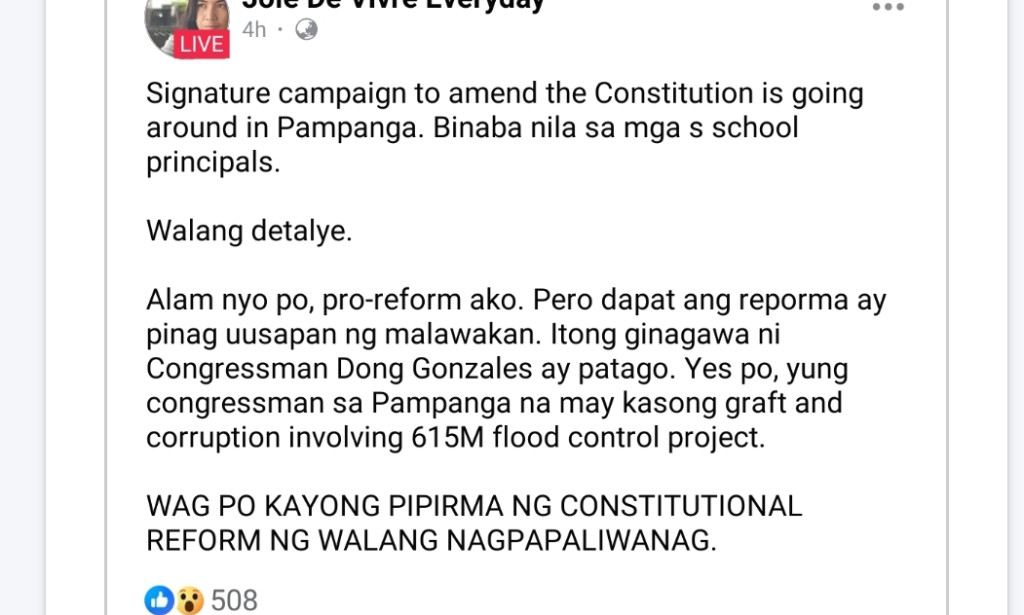
For many years, changing the 1987 constitution has been a topic of discussion in the Philippines. From the time of Fidel Ramos to the present day, there has been a desire to amend or revise the constitution. However, the process of making these changes is arduous, requiring majority votes from Congress and two-thirds votes from the Senate. Despite numerous attempts, proposals for constitutional reform have consistently failed to gain approval from the President and the Senate. Now, under the administration of Ferdinand Marcos Jr., a new approach is being taken: utilizing the People's Initiative, which allows for amendments or constitutional changes without the need for Senate and presidential approval.
The People's Initiative and Controversy:
The concept of the People's Initiative is an intriguing one, as it bypasses the usual channels of approval. However, it has not been without its share of controversy. Recently, a signature campaign was launched to change the constitution, but it attracted criticism from both supporters and critics of the Marcos administration. Joie De Vivre, a vocal Duterte supporter, took to social media to express her concerns. She pointed out that the campaign failed to adequately explain the purpose of signing and the specific changes being proposed. This lack of transparency raised suspicions that the constitutional reform might be driven by personal interests rather than the well-being of the nation.
Krizette Laureta Chu, who identifies as a pro-reform advocate, echoed similar sentiments. She emphasized the importance of the Congress clearly explaining to the public what they intend to change in the constitution. Chu voiced concerns that without proper elucidation, the campaign could be exploited for personal gains. Additionally, she expressed doubts about the trustworthiness of Martin Romualdez, a key figure involved in the reform efforts, citing his inability to address issues within his own territory of Samar Leyte.
The Role of Personal Politics:
The ongoing debate surrounding constitutional reform has also shed light on the influence of personal politics in the Philippines. It has been observed that some Duterte supporters tend to endorse proposals solely based on their alignment with the Duterte administration. This raises questions about the impartiality and objectivity of such endorsements. However, proponents argue that constitutional reform is necessary to establish a parliamentary system, which they believe would facilitate the removal of incompetent leaders, should Martin Romualdez become a Prime Minister.
Conclusion:
The pursuit of constitutional reform in the Philippines has faced numerous challenges over the years. The introduction of the People's Initiative as a means to enact constitutional changes has generated both excitement and skepticism. Critics have called for greater transparency, urging Congress to clearly communicate their intentions to the public. Meanwhile, the debate surrounding personal politics and the influence of the Duterte administration continues to shape the discussion. As the nation navigates this complex landscape, the fundamental goal of constitutional reform—to establish a system that promotes good governance and effective leadership—remains at the forefront of the conversation.


You must be logged in to post a comment.